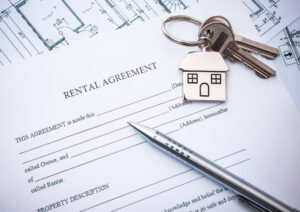What Do I Need to Know About Rental Agreements in Massachusetts?

Renting a property is a significant step, whether you’re a tenant seeking a place to call home or a landlord looking to lease your property. In Massachusetts, rental agreements must adhere to specific terms and regulations to protect the rights of both parties. These are the key terms that must be included in a rental agreement, as well as prohibited terms that landlords cannot include.
Essential Terms in a Rental Agreement
Every rental agreement in Massachusetts must contain certain crucial information to ensure transparency and clarity. These terms are designed to protect the interests of both landlords and tenants:
1. Owner Information: The rental agreement must include the name, address, and phone number of the property owner. This allows tenants to contact the owner when necessary.
2. Maintenance Contact: Additionally, the rental agreement should specify the person responsible for property maintenance. This ensures that tenants know who to contact for repair and maintenance issues.
3. Recipient of Notices: The rental agreement should provide information about the person to whom the tenant can give copies of formal notices, complaints, or court papers. This contact information is essential for communication between tenants and landlords.
4. Security Deposit Details: If the landlord requires a security deposit, the rental agreement must clearly state the amount paid and explain the tenant’s rights concerning the security deposit money. This is to ensure that tenants understand how their security deposit is handled.
Prohibited Terms in a Rental Agreement
Massachusetts law also prohibits certain terms from being included in rental agreements to protect the rights and interests of tenants. Landlords are not allowed to include terms such as:
1. Charging for Ordinary Wear and Tear: Landlords cannot require tenants to pay for the cost of repairing ordinary wear and tear to the apartment. Ordinary wear and tear are considered part of the natural aging process of a property.
2. Repairs Beyond Tenant’s Apartment: Rental agreements cannot make tenants responsible for repairs to parts of the building beyond their apartment. Maintenance and repairs of common areas are typically the responsibility of the landlord.
3. Prohibition on Lawsuits or Reporting Violations: Landlords cannot include terms that prevent tenants from suing the landlord or reporting violations of the Massachusetts Sanitary Code. Tenants have the right to seek legal remedies and report issues related to health and safety.
4. Restrictions on Joining Tenants’ Unions: Rental agreements cannot prohibit tenants from joining tenants’ unions or other tenant organizations. Tenants have the right to organize and advocate for their interests collectively.
5. Excessive Late Fees: While landlords can charge late fees for rent payments, they cannot require tenants to pay a late fee if rent is even one day late. A lease or rental agreement may permit late fees only if rent payment is 30 or more days overdue.
Understanding these essential terms and prohibited clauses in a rental agreement is crucial for both landlords and tenants in Massachusetts. It ensures fair and transparent rental agreements that comply with state laws and regulations, promoting a positive and mutually beneficial rental experience for all parties involved. If you have any questions or concerns about your rental agreement, it’s advisable to consult with legal professionals or housing authorities to ensure your rights are protected.
If you have questions or concerns about a Rental Agreement, call the Law Offices of Johnson Sclafani & Moriarty at 413-732-8356.